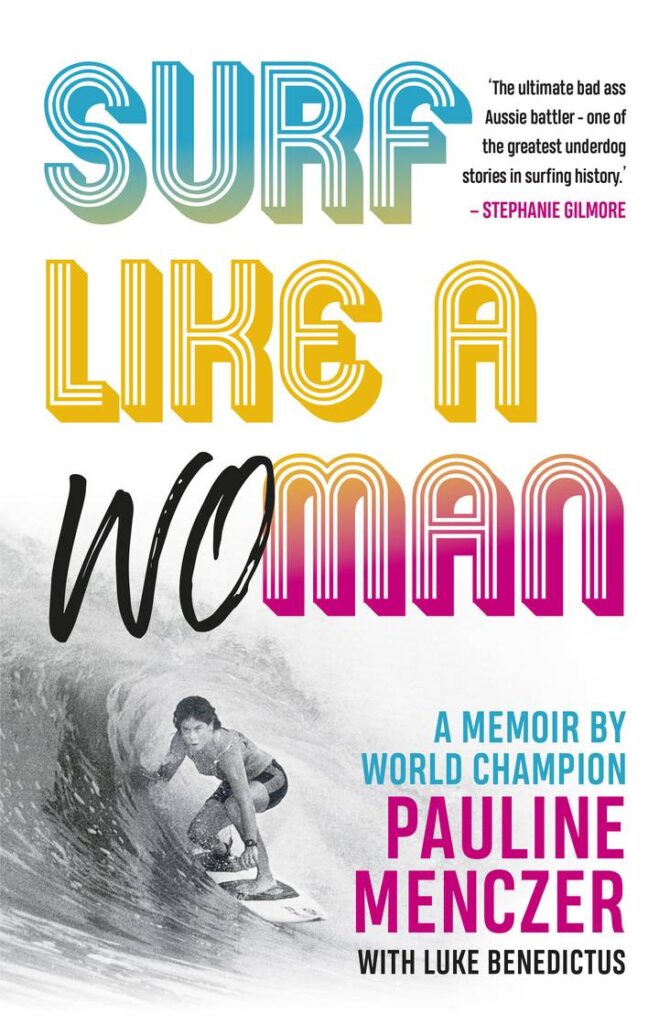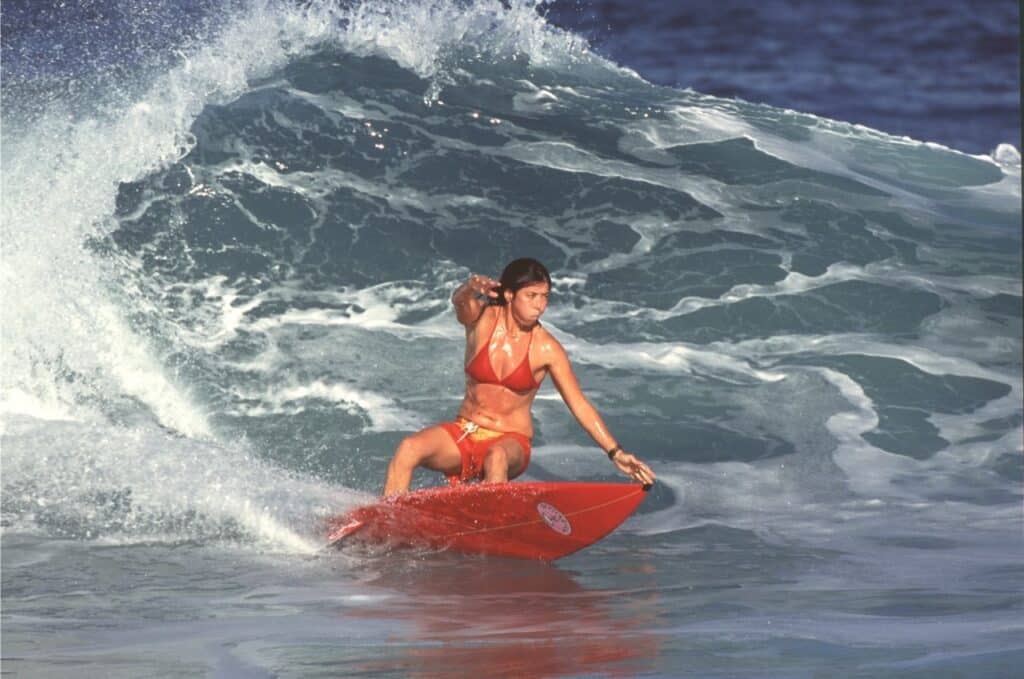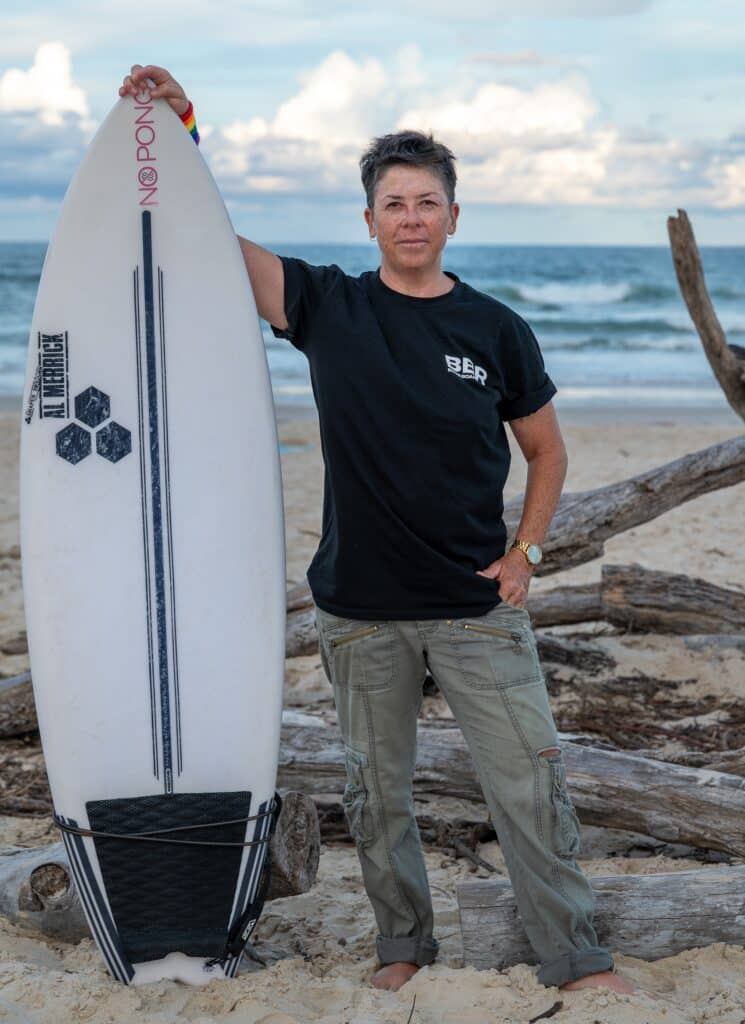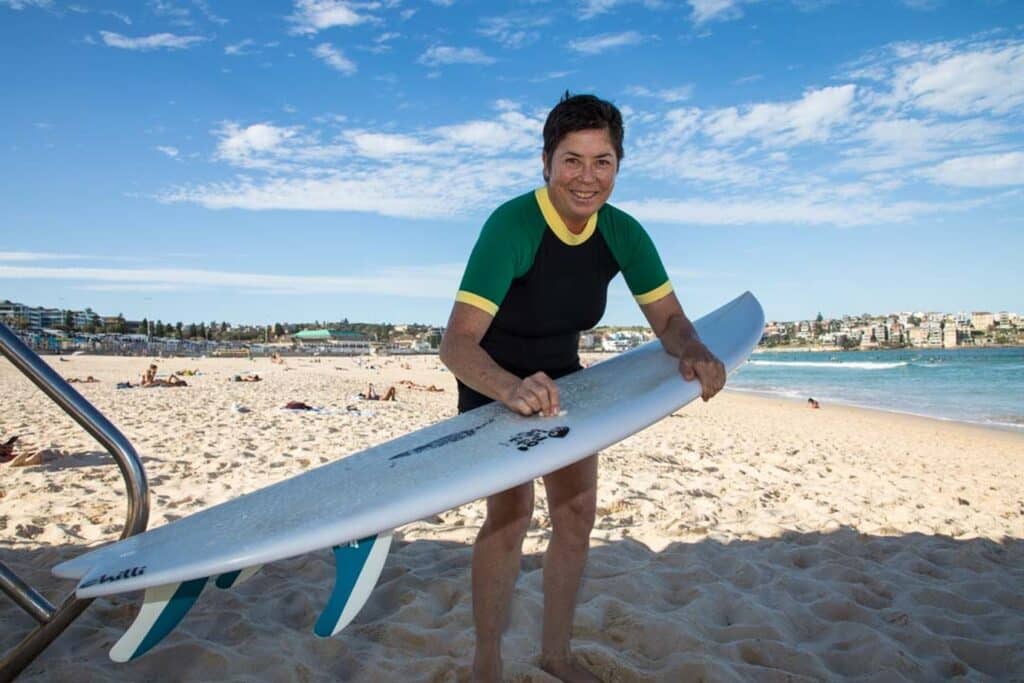Legendary athlete Pauline Menczer put in a lifetime of groundwork to pave opportunities for women in surfing, and now she’s inspiring the next generation with the release of her new memoir, Surf Like a Woman.
Menczer is a person who’s overcome more challenges than most, and yet her frame of mind still lies in finding the positive in every negative. She wrote this book to show that no matter who you are or where you come from, it’s possible to push through adversity.
“I want people to know that it’s not just a book for surfers,” Menczer tells Women’s Agenda.
“I want this book to inspire and encourage people. No matter what you’ve got going in your life, just to keep going.”
The book takes the reader through many fascinating stories in Menczer’s life, and there’s a lot.

Reading back through the memoir recently, she says she felt outside of herself, like she was going through the adventures of Huckleberry Finn as there’s a lot about her childhood growing up in Bondi. It also goes through her legendary World Title win, her struggles with illness and her identity as a gay woman in 80s and 90s surf culture.
“It was a very big process of getting not only my own story, but trying to find the history of women’s surfing, which has not been documented as well as it should be,” says Menczer.
That’s the other reason that it felt right to release her memoir at this moment in time.
Menczer says that many of the younger female athletes and commentators out there don’t have many ways to learn the history of women in surfing. And while there’s still much work that still needs to be done to support female surfers, Menczer wants them to be able to hear the stories of the women before them, who fought for the opportunities available in sport today.
Bondi beach’s unsung legend
One of Menczer’s most applauded achievements is arguably her World Title win in 1993. And this is for good reason, considering all the barriers she overcame before, during and after the competition.
Without the support of a sponsor and having just been hit by a bout of arthritis, Menzcer took to the waves in 1993 to capture the World Title, only to not be given any prize money– all funds went to the men’s champion.
During the event, she was in such intense pain from rheumatoid arthritis that she was barely able to walk. And yet, she’s still the only surfer from Bondi to ever actually win a World Title.

Following the popular documentary Girls Can’t Surf, which featured Menczer’s feats alongside other female surfers of the time (including Jodie Cooper, Wendy Botha and Layne Beachley), with many fans becoming outraged that she didn’t receive prize money for her win. A GoFundMe page was subsequently set up, which raised over $60,000 for Menczer.
Even in other tournaments when Menzcer placed or won, men got the bulk of the prize money. Herself and her fellow female surfers had to scrape by with minimal income to cover everything from travel around the world to compete and their equipment to food and doctor’s appointments, often barely breaking even.
The docu-film’s success helped give Menczer some long overdue recognition for her achievements, along with a mural painted at Bondi Beach to commemorate her.
While a mural of the Matildas has since covered Menczer’s artwork, there are also plans in the works to build a bronze statue of her at Bondi Beach, with a GoFundMe page set up to help support.
It’s been noted that Australia has more public statues of animals than women, so Menzcner says the plans for her statue have “nothing to do with her”.
“I don’t even care if it’s another female surfer. I just want little girls to go past it and go ‘I want to be that’.”
Trailblazer for many identities in sport
Surf culture in the 80s and 90s was quite toxic for women, who were often ignored by sponsors, underpaid (if paid at all) as well as underestimated and insulted for their talents.
Following her 1993 World Title win, Menczer was hopeful it might trigger sponsorship interest, but soon realised the money was saved for male championship winners and female models.
In addition to this, however, Menczer was also missing out on deals due to her sexuality. hen Menczer travelled to competitions with her partner, they often had to pretend she was Menzcner’s coach to avoid discrimination and bias from judges.
Homophobia was rife in surf culture back then, and Menczer says she, unfortunately, had to spend a lot of her life hiding her sexuality.
“I’m really bummed that I had to even do that, but I did it for my safety back then, and now I just want to just be me.”

Along with being a trailblazer for women and the LGBTQI+ community, Menczer hopes her story will help raise awareness for people with disabilities as well.
In addition to the rheumatoid arthritis she’s had to navigate, in 2018 Menczer was diagnosed with a rare blistering skin disease, pemphigus vulgaris. Luckily, she eventually found relief through a drug called Rituximab, but while suffering from the disease was in immense pain and unable to swim, surf or take part in many day-to-day activities.
Recording women’s sport history
Amid all the highs and lows of her life, Menczer is determined to add to the written history of women in surfing. She’s building off the women who came before her, while giving the next generation of women someone to look up to.
“I’m quite a feisty person,” says Menczer. “I had three brothers that really brought me up pretty tough, so I wasn’t scared to say things.”
Since surfing is such a tight-knit community, Menczer has been able to connect with other younger female surfers to spread this feisty nature.
“I think to make it as a top surfer you need to be a little bit outspoken,” she adds. “So the ones that are scared to speak up might need a little bit of guidance, or a little bit of pushing.”
“We all fought really hard to get it where it is,” she says about her own and her fellow female surfers’ contributions to creating equal opportunity for women in sport.
“If you want it to still keep going, you have to keep fighting hard.”
Header image credit: Bill Morris


